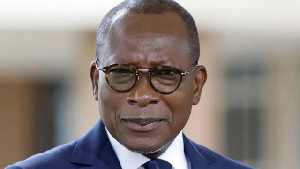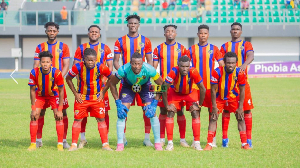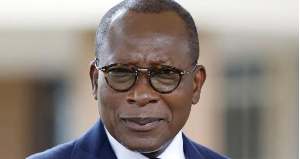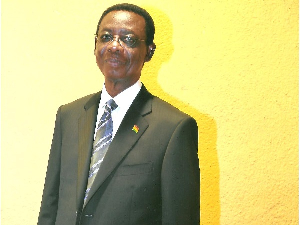Ghanaian music sounds Nigerian because local music makers are using samples created and curated by Nigerian producers, Wei Ye Oteng has said.
The acclaimed music producer spoke to Nana Romeo on Accra 100.5 FM's Entertainment Capital, Saturday, July 22, 2023.
“[Do] you know why most people think now Ghana our songs sound like the Nigerians’? [It’s] because most of the samples we are using are from Nigeria,” he said. “Nigerian producers create the samples.”
He sent “shout outs to Two Kings,” adding that he has bought numerous samples “and if you call him for samples, he’ll resell them to you and take his margin”.
He pointed out that “you can hear the same [drum] rolls in the music of about 50 producers,” indicating that this is why all the songs sound familiar these days.
The unique producers, he contended, are the ones that identify a specific musician and “programme” something distinct for them.
He cited that there are times star music producer and singer Akwaboah does “what we know” him for – outstanding composition and arrangements “but if Akwaboah wants to do some of the trendy songs, see the kind of [cliché] beats he rides on – so you see? The difference is clear.”
Oteng said it is now “difficult” for most of Ghana’s veteran music figures to do music.
“It’s not because they don’t have the feel [desire],” he explained, “but it’s because they wish they could do a few changes to the beat [given them] but it is impossible because it’s caked [done and unalterable].”
He lamented that Ghanaians “are doing a disservice to ourselves” and “disgracing the producers [of old] who sat in the studio and did those creative creations that some of us learned from and were inspired by that has today [made us who we are].”
He gave a standing ovation to “Uncle Zapp [Mallet]” when Romeo asked for examples of the creative music programmers he was referring to.
Others, in his view, are Jay Q, Morris Babyface, Roro, Appietus, Kaywa, Da Hammer, etc.
“You wonder why we keep mentioning the same names, the same range? [It’s] because these people were creators. Within their minds, they took their time, took their pianos and [other instruments] and created,” he argued.
Justice Wei Ye Oteng challenged his audience to play Kwaw Kese's ‘Nonsense’ hit, for instance, and see how people react as a testament to the timelessness of “the sound” created by Da Hammer.
Entertainment of Tuesday, 25 July 2023
Source: classfmonline.com













